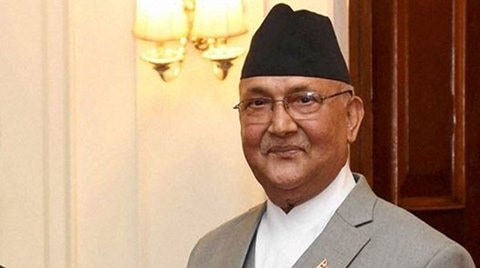
The speculation over whether Prime Minister K. P. Oli will resign after the budget is passed by parliament has died a quiet death. The main opposition, the Nepali Congress, despite being the largest party, has failed to come up with the required numbers in parliament. Oli has asked major parties not to disturb his government at least till the end of October so that Chinese President Xi Jinping’s visit in October becomes an “all-party event”.
Given Nepal’s growing proximity to China and the new protocol for development that it has signed with Beijing recently, the significance of Xi’s visit cannot be underestimated. China’s clout in Nepal’s politics, at least in terms of perception, has grown in direct proportion to the increase in its assistance. Despite Nepal’s declared policy of maintaining equal distance from its two big neighbours — India and China — the former used to enjoy, at least till about a decade ago, enormous influence on Nepal.
Last week, the eminent persons group (EPG) on Nepal-India relations met in Kathmandu to begin to “advance and enhance” the bilateral relationship, which is at its lowest ebb ever, especially after Oli took over as the PM last October. His assumption of office coincided with India’s border blockade of Nepal that caused unprecedented hardship to the Nepalese. It was the first time that Nepal decided to look north and explore additional transit and trade possibilities. President Xi’s visit takes place in this backdrop of Nepal trying to expand its relationship with China. The depth and intensity of the outcome will, in turn, depend on how fast India and Nepal are able to mend fences and dispel the existing trust deficit.
The EPG’s India head, Bhagat Singh Koshyari, a senior BJP leader, perhaps sensed the need for such repair when he emphasised the virtue of oneness between the two countries that are bound by religion, culture, history, geography and proximity among their peoples. Without invoking Hindutva, he said that the people of the two countries had the same blood group and their gotra too was the same. But he went a
little overboard by asking Nepal to acquire happiness, like Bhutan has done, by building cordial ties with India. For the Nepalese, a comparison with Bhutan — seen by some as a protectorate of India — is an affront to its sovereignty.
Oli has given a new dimension to Nepal’s foreign policy — perhaps largely on the rebound but partly as a well-calculated move. The political change of early 2006 in Nepal had many internal dimensions, but India’s mediation that brought the Maoists, who carried the terrorist tag, to centrestage in Nepal politics, and the removal of monarchy, accused of playing the China card, are the two most crucial factors going against India at present.
The Maoists always opposed India and the US. The absence of a strong institution like the monarchy and the prolonged transition and instability that followed influenced China to review its Nepal policy. At a time when Nepal-India relations suffer from a trust deficit, China insists on Nepal’s political stability as a precondition for its development. But India’s stance that the Nepal’s constitution is inadequate and needs amendments to suit Madhesi aspirations, is likely to be resisted more by Nepal in the days to come. There is credible information that both India and China are talking and giving similar advice — that Nepali actors must get together for stability and peace. Whether the traditional forces and institutions — ignored during the political and peace process in the decade of change — should be part of that undefined “all actors” category is not something they have clearly stated.
Foreign Secretary Shankar Das Bairagi, who was in Beijing last week, reported back to the government that political stability in Nepal was a precondition for President Xi’s visit. Oli’s recent meeting with Sher Bahadur Deuba, the main opposition leader, and Pushpa Kamal Dahal, the Maoist chief, was essentially to convey this sentiment.
Oli who stood up to India at the time of crisis has not delivered much during the past nine months of his premiership but commands the respect of the masses. The Nepali Congress, which lost the bid to topple the government in April, is lying low for the moment. A slightly prolonged lease of life for Oli, however, is no indicator of sustained political stability.